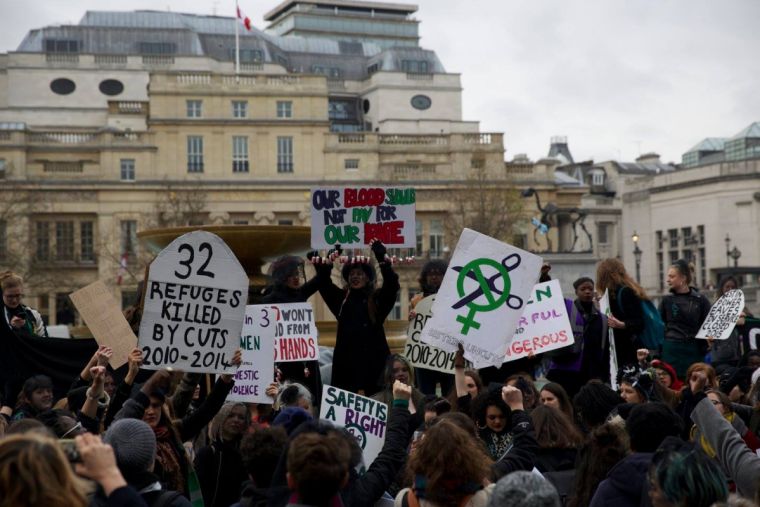Government is 'complicit' in stagnant gender pay gap, MPs say
The government is "complicit" in the failure to close the gender pay gap, according to MPs.
A 20 per cent difference in pay between men and women has remained steady for four years, despite the government's stated aim to eliminate the pay gap within a generation, a report released by the Women and Equalities Select Committee said today.

The report states that unless change is implemented, women will be unable to fulfil their potential, costing the economy £36 billion in skills. It demands that more should be done for women returning to work and more attention paid to "highly feminised" industries, such as retail, care and cleaning.
"The gender pay gap is holding back women and that isn't going to change unless the government changes its policies now," said MP Maria Miller, the chair of the committee.
"The pay gap represents a massive loss to the UK's economy and we must address it in the face of an ageing workforce, a skills crisis and the need for a more competitive economy.
"If the government is serious about long-term, sustainable growth it must invest in tackling the root causes of the gender pay gap. Adopting our recommendations would be a significant step towards achieving the goal of eliminating the gender pay gap within a generation."
The report recommends that fathers should be offered three month's paid leave and that flexible working hours should be available for all employees.
Speaking to Christian Today, gender justice specialist Natalie Collins praised the report, but added: "It is obviously great that this issue is being raised, however the pay gap is just one piece of a much bigger puzzle. The basic issues – such as welfare cuts that particularly affect women – have not been mentioned in the report.
"Tackling the issue of wage is important, however we cannot have this conversation without talking about the wider implications of welfare cuts affecting women," she said.
"For example, the change from child benefits to universal credit means that the money no longer goes directly to the mother. This means that women won't necessarily have access to the money, for example, if they are with an abusive partner."
Pay is just one aspect of a woman's welfare, and tackling issues such as workplace bullying and male violence more generally is also vital, Collins added.
"This is a missed opportunity to connect wage inequality with wider issues that are facing women in society," she said.
"If we don't have refuges for domestic violence, how can we hope to have equal pay?"
TUC general secretary Frances O'Grady said: "David Cameron promised pay equality within a generation, but this won't happen by tinkering around the edges. We need a proper shake-up of the current order.
"If we don't tackle problems like occupational segregation, the motherhood pay penalty and barriers to more equal parenting, the gender pay gap will take decades to close."











